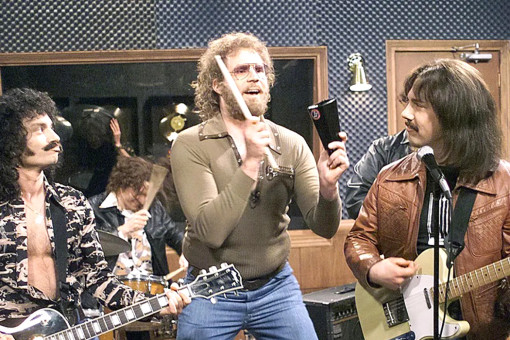At 30,000 feet, somewhere between London and New York City, Soo Hugh was sobbing.
Reading the acclaimed Min Jin Lee novel Pachinko on her flight home, the writer had come to the passage in which a poor Korean mother asks a merchant for a bowl of rice for the emergency wedding of her pregnant daughter. Suddenly, Hugh felt tears flow down her face. "A flight attendant asked if I had just heard that somebody died," Hugh recalls. "I had to explain that I was reading a scene!"
To be sure, that was not the moment Hugh — then the showrunner for the first season of the AMC anthology The Terror — realized she had to adapt the 2017 bestseller into a series.
"I was like, 'I can't do this show!'" she says. "Period pieces are tough." Then her creative wheels started spinning. As the Maryland-reared, Yale-educated daughter of two working-class Korean immigrants, Hugh sensed this was her ideal project. "The book was an emotional homecoming for me," she says.
Four years after that fateful flight, Pachinko is landing: it premieres March 25 on Apple TV+. The sprawling yet intimate saga focuses on a multigenerational immigrant family, tracing their lives from early-twentieth-century Korea (then under Japanese rule) to Tokyo in 1989.
With its stunning settings and international cast — including Minari Oscar winner Yuh-Jung Youn as matriarch Sunja — the eight-episode series boasts the budget and pedigree of a prestige feature. No wonder anticipation has been building since Apple announced it had picked up the series in March 2019. Says Hugh, the showrunner and an executive producer, "It's been an amazing, crazy, gratifying odyssey."
But she was right about one thing: the behind-the-scenes process was the opposite of easy. Abandoning the novel's chronological organization, Hugh crosscut the narrative between past and future to underline a central theme: the search for identity and acceptance in a foreign land.
She half-jokingly admits that overseeing the story in three languages was "the worst thing in the world," as each English-based script required several rounds of revisions from Korean and Japanese translators, plus postproduction subtitles and dubbing.
Filming during the pandemic proved challenging as well. The original plan was to roll in Canada, Japan and Korea. When Covid hit in 2020, Japan was scrapped. Production finally got under way in Korea that October; four months later, everyone uprooted to Vancouver. After wrapping in April 2021, the team spent nearly a year in postproduction.
Throughout, Hugh never let up on her vision. "Anyone can make a wide shot look beautiful, so the challenge I gave to the filmmakers was to sell me an epic on a closeup," she says. "The stories of everyday people should feel epic because living is a struggle. A conversation should feel like it has the stakes of a battle."
Viewers won't immediately see the full portrait: Hugh plans a four-season run. The writers are already pitching ideas, which means Hugh is ready to clear all those obstacles once more. Only this time, she knows how.
"I'm always the first to say, 'We're not reinventing the wheel!'" she says. "But so many times, we couldn't learn how something was done before, because the answer would always come back, 'This has never been done before.' That would make me feel terrified!" And yet, she quickly adds, "We did it."
More articles celebrating Asian American & Pacific Islander Heritage Month.
This article originally appeared in emmy magazine issue #2, 2022, under the title, "Epic Odyssey"














